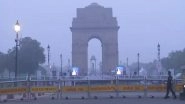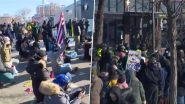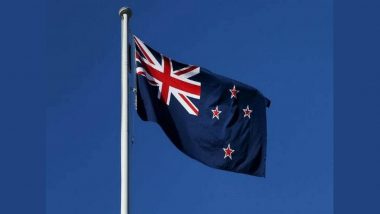Colombo, July 6: Amid the economic crisis and potential civil disorder in Sri Lanka, New Zealand has asked its citizens to avoid non-essential travel to the country. A travel advisory was issued by New Zealand on Wednesday which said that the economic situation of Sri Lanka has deteriorated significantly over the past few months and there has been a shortage of fuel and basic necessities which has caused long queues in a range of shops, including supermarkets, petrol stations, and pharmacies, the Colombo Gazette reported.
The advisory added that the travellers should ensure they have proper transport plans and contingency plans ahead of any journeys to or around Sri Lanka as they might face difficulties or delays in obtaining fuel, food deliveries, taxis, ride-share services, and public transport as well as delays in accessing emergency services. Rationing of electricity has been imposed by the local authorities causing lengthy power outages.
Large protests, demonstrations, and political rallies are being carried out in the country and there is increased police and military presence in the streets, especially around queues as violence has also been reported at queuing sites, it added. Sri Lanka's Crisis Rings Alarm for Other Troubled Economies.
The advisory added that multiple incidents of violent clashes in public places have been reported in the country and it has resulted in a number of deaths and hospitalizations along with the destruction of property and burning of houses.
A state of emergency and curfews have been imposed in the country and the police personnel has used tear gas and water cannons to disperse certain demonstrations, Colombo Gazette reported citing the advisory.
New Zealanders that are currently residing in the country were asked to avoid protests, demonstrations, rallies, large crowds, and queues, comply with the instructions given by the local authorities, monitor local and international media, review personal security plans and exercise caution and leave the area in case of a protest, demonstration or violent clash.
Notably, Sri Lanka has been facing the worst economic crisis since independence in 1948, leading to an acute shortage of essential items like food, medicine, cooking gas, and fuel across the island nation. The economic crisis has particularly impacted food security, agriculture, livelihoods, and access to health services.
Sri Lanka is one of the few nations named by the Food and Agriculture Organization (FAO) which is expected to go without food due to the global food shortage expected this year.
(The above story is verified and authored by ANI staff, ANI is South Asia's leading multimedia news agency with over 100 bureaus in India, South Asia and across the globe. ANI brings the latest news on Politics and Current Affairs in India & around the World, Sports, Health, Fitness, Entertainment, & News. The views appearing in the above post do not reflect the opinions of LatestLY)













 Quickly
Quickly


